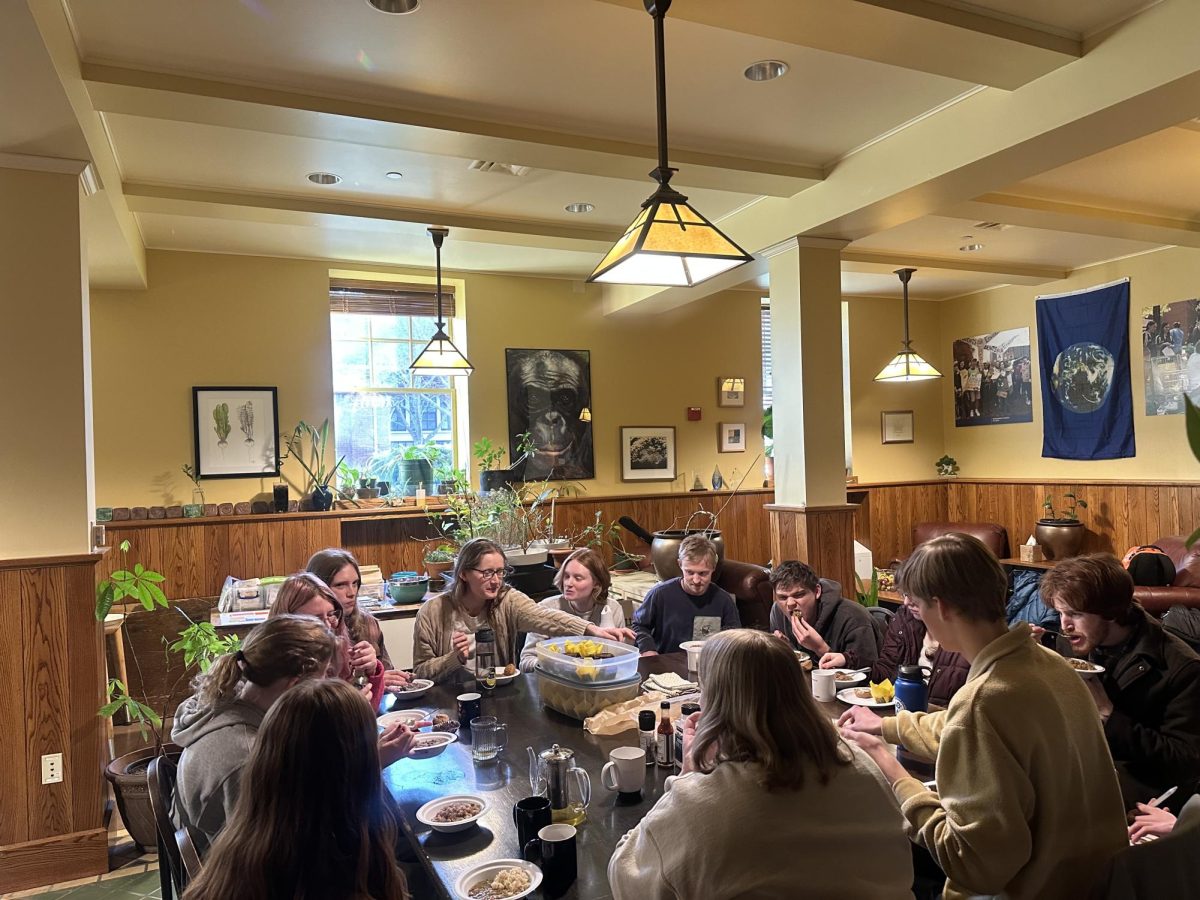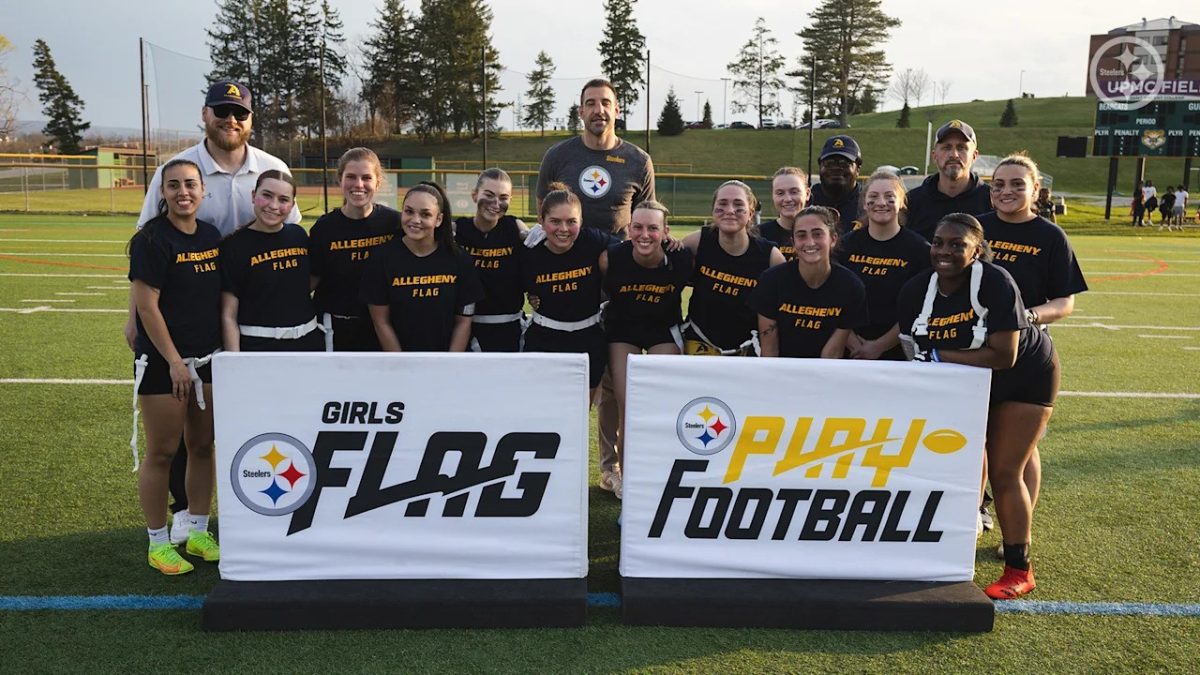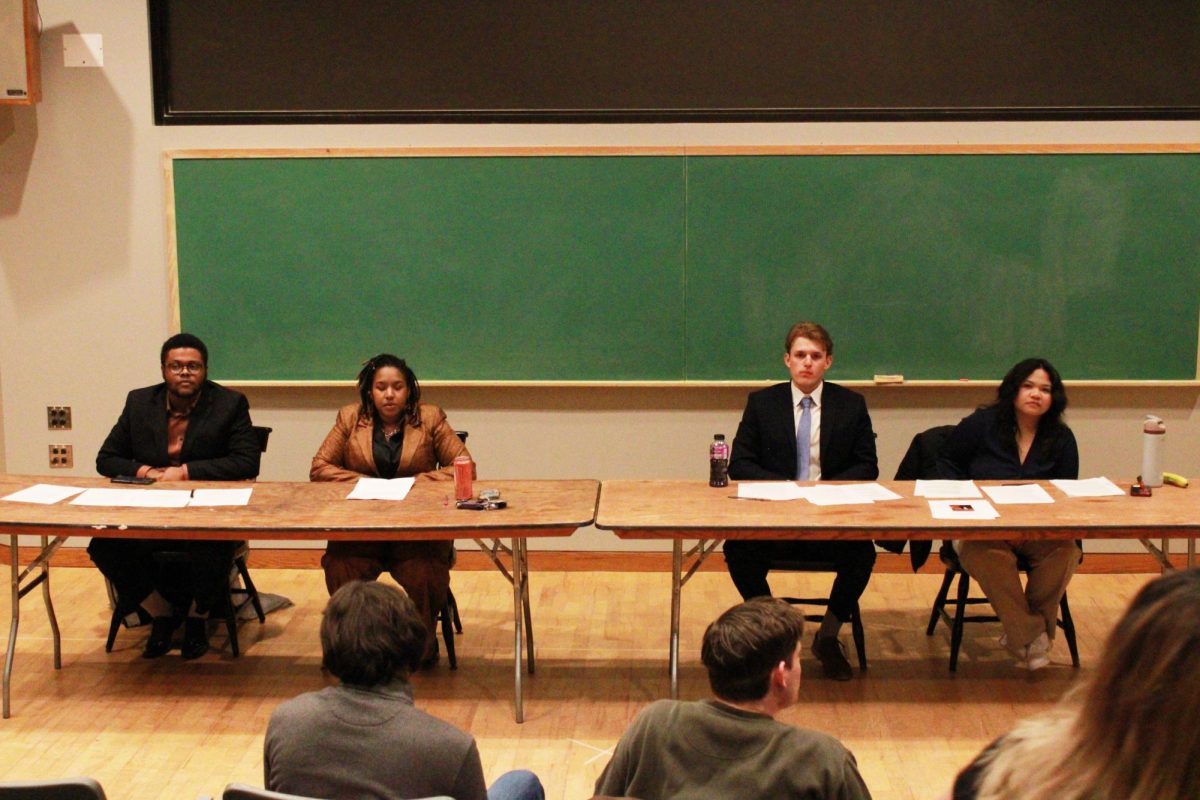
By MEGAN KNOX & KRISTIN BALDWIN knoxm@allegheny.edu,baldwik2@allegheny.edu
With the recent swine flu outbreak on campus last semester, students are looking for ways to escape H1N1 contraction.
Allegheny’s Winslow Health Center recently offered two clinic sessions, one in December and the other this past week, to provide students with a free H1N1 vaccination.
Information that appeared on the “My Allegheny” Web site alerted the student body. For each clinic, the Health Center offered two-hour sessions for two separate days. According to the Web site regarding the first clinic, the Health Center said that it had “received ample vaccine,” and that vaccination stocks would be replenished for an additional clinic in January. The clinics were open to all Allegheny students and faculty.
Ashley Whitehead, ’11, took advantage of the open clinic.
“I went to the first one while I was on campus,” Whitehead said. “Not many students were there, just those that were still here from finals. It was mostly professors.”
There was a very small turnout at the clinics this semester, according to the Director of Winslow Health Center, Sue Plunkett.
“We only had about 15 students show up to the clinics this semester,” Plunkett said. “We were a little surprised by that, because we had tons of phone calls from students and parents last semester looking for the vaccine.”
For most local institutions, including Allegheny, the vaccinations were not available until mid-December, which was when students were leaving campus for winter break.
“We inoculated quite a few people in those last few days, both students and faculty,” Plunkett said. “But now we’ve probably got about 2,700 doses in our refrigerator. And they are free.”
The Health Center staff is making it as easy as possible for students to be inoculated.
“Students can call and arrange a time or they can just walk in,” Plunkett said. “It won’t make them feel sick, and I haven’t even heard complaints of a sore arm. It seems to be very well-tolerated.”
It takes about ten days to achieve full immunity to the virus.
“This is a great time to get the vaccine,” Plunkett said. “We don’t know what’s going to happen as far as another outbreak. The next one could be worse. There isn’t a lot of information in the media anymore because the outbreak has died down. But we had two cases on campus just last week, both with complications. That makes me a little bit nervous.”
Patrick Juber, ’10, did not partake in the clinics and opted instead to receive his inoculation once on winter break. Juber said that he had been aware of the clinics, and felt that the student body had been well-informed about the H1N1 shots via e-mail.
“Everyone reads their e-mail, I just missed it and forgot about it,” he said.
It seems that Allegheny’s response to the H1N1 virus is comparable to other Pennsylvanian institutions.
The University of Pittsburgh’s Student Health Services informed their student body in a similar means by posting notifications on the university Web site.
Issued Jan. 14, the post indicated that Pittsburgh’s Health Center will offer the vaccination Monday through Friday from 9 a.m. to 5 p.m. According to the Web site, “The University has enough vaccinations to cover all students who have already registered for it.”
Another comparable institution is Dickinson College, based in Carlisle, Pa. Throughout the flu season, Dickinson students were able to report flu symptoms and the Health Center quickly coordinated all the necessary measures for self-isolation. Professors were alerted and meals were delivered to dorm rooms so that flu-stricken students could recover.
Like Allegheny, Dickinson was equipped with a supply of vaccination, though a clinic was about a month prior to the Winslow Health Center’s December clinic. The clinic was offered Nov. 10 with a 10 a.m. to 2 p.m. time slot for students to receive the shot. Additionally, “high-risk” students were given priority over their fellow classmates.
As Plunkett pointed out, the media has limited their coverage of the H1N1 virus. However, it continues to be an issue nation-wide and in the Allegheny community. Plunkett stressed that the inoculations are free and available anytime during the Health Center’s office hours.
“It can’t hurt to get one,” she said.









